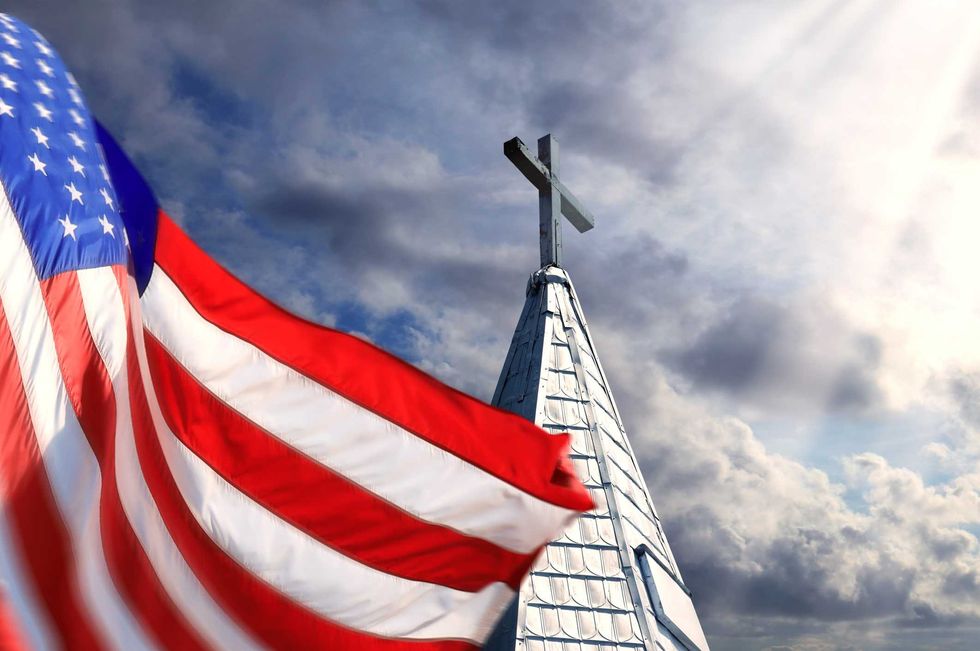History is not indoctrination — or is it?
How many people know that the scriptures were cited by our founders more than Locke, Montesquieu, and Blackstone combined? Students learn that James Madison is the father of the Constitution, but do they know that he would likely have failed unless he had promised a bill of rights to Pastor John Leland?
My frustration with the lack of education boiled over with the assassination of Charlie Kirk.
Does today’s generation realized that the pilgrims were literally a church plant and that the Mayflower Compact was modeled after a church covenant?
It’s more likely they believe that America was formed under secular influences with just a tiny tip of the hat to a generic god for good measure.
The doctrine of the separation of church and state, they assume, is to purge religion from the civic arena at the behest of Jefferson and the Constitution. Most are shocked to learn that this doctrine originated with a politically engaged pastor, Roger Williams. He had been banished from the Massachusetts Bay Colony for his religious beliefs and threatened with deportation back to England, where he would certainly be imprisoned. Instead, he fled north with the assistance of the Native Americans, where he founded Providence. Williams derived this concept from Isaiah 5, likening the vineyard to the church, the wild grapes to the world, and the hedge to the wall of separation.
As a pastor in the Ohio legislature, hardly a day goes by that the uninformed do not criticize my engagement in the political sphere without any awareness that the top signature on the Bill of Rights was a pastor who also happened to be the first speaker of the House.
My frustration with the lack of education boiled over with the assassination of Charlie Kirk.
I met Charlie at the National Association of Christian Lawmakers conference last December. He was grateful for the work that I had done in Ohio on the SAFE Act and Save Women’s Sports and emphasized the power of pastors being engaged. He understood our American heritage and preached the power of God’s people being engaged.
My colleagues observed that he was a unique blend of Rush Limbaugh and Billy Graham. But in a nation increasingly unaware of its own heritage, his bold proclamations elicited hate, anger, and violence from the uninformed.
This is the fruit of deconstruction and post-structuralism in America. When one generation stops teaching our history and the next generation starts rewriting it, we shouldn’t be left wondering why our youth are disconnected and disaffected.
The Charlie Kirk American Heritage Act is my response to ensure that each generation can enjoy the benefits of learning the source of liberty as told by our founding fathers.
America’s educators who understand these truths know that hate groups like the Freedom from Religion Foundation lurk in the shadows ready to prey on them with lawsuits designed to silence and intimidate them. One superintendent informed me that it was, in fact, a violation of the First Amendment to teach the impact of religion on America. It’s not, of course, but I couldn’t convince him of the truth.
RELATED: Bring God back to schools — before it’s too late
 imagedepotpro/iStock/Getty Images Plus
imagedepotpro/iStock/Getty Images Plus
During our first committee hearing on the Charlie Kirk American Heritage Act, opponents asked why we only mention Christianity in the bill. The answer is simple: All faiths are equally free — but not all faiths contributed equally to ensure that freedom.
One Democrat retorted that our founding fathers used generic monikers for deity so that all could interpret God to be who they imagined Him to be. He was insulted that I wrote, “If we were to remove Christianity from American history, we would have no American history.”
Rather than taking my word for it, I suggested that he consult the founding fathers.
John Adams wrote to Thomas Jefferson on June 28, 1813, “The general Principles, on which the Fathers Achieved Independence, were the only Principles in which, that beautiful Assembly of young Gentlemen could Unite, and these Principles only could be intended by them in their Address, or by me in my Answer. And what were these general Principles? I answer, the general Principles of Christianity, in which all those Sects were United.”
The Charlie Kirk American Heritage Act simply affirms that teaching the positive impact of Christianity on American history is consistent with the First Amendment and is not a violation of the doctrine of the separation of church and state.
Teachers should be free to teach the truth. My hope is that Charlie is smiling down on this legislation and realizes that the impact he made will outlive him for generations to come.
The post The American history they don’t want your kids to know appeared first on TheBlaze.




